Research in the News
White House Report Cites Professor’s Research on Climate Change

Marc Conte, Ph.D., an associate professor of economics whose research had focused on sustainability and climate change, was cited in a major report issued by the White House in March.
The 513-page 2023 Economic Report of the President, which was issued on March 23 by the Executive Office of the President’s Council of Economic Advisers, cited two papers by Conte and his coauthors in the report’s ninth chapter, “Opportunities for Better Managing Weather Risk in the Changing Climate.”
Read more here.
‘Doing Good with Data’: Faculty and Students Present Research
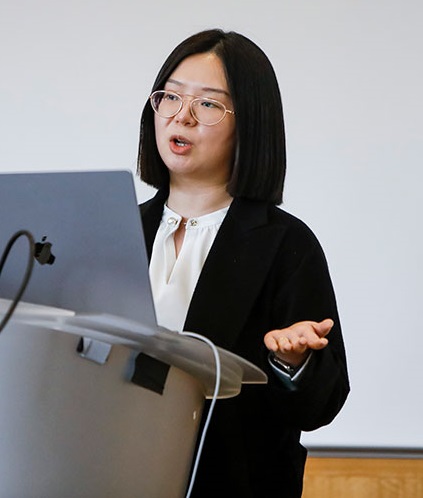
Fordham faculty and students demonstrated how they’re using data to enhance medical research, examine the impact of social media, prevent AI “attackers,” and more at the “Doing Good with Data” symposium, held at the Law School on April 11.
“It’s particularly exciting to see how data science is being used to enhance ethically informed and motivated research,” said Ann Gaylin, dean of the Graduate School of Arts and Sciences. “I’m also pleased to note how this research aligns so closely with GSAS’s mission of graduate education for the global good.”
Read more here.
Fordham Faculty present their recent books at Research Day 2023
These six book authors presented their latest work at Research Day this past March. Here are abstracts of each of their books.
Günther Anders’ Philosophy of Technology: From Phenomenology to Critical Theory 1st Edition,
by Babette Babich (Author)

Gunther Anders' Philosophy of Technology is the first comprehensive exploration of the ground-breaking work of German thinker Gunther Anders. Anders' philosophy has become increasingly prescient in our digitised, technological age as his work predicts the prevalence of social media, ubiquitous surveillance and the turn to big data. Anders' ouevre also explored the technologies of nuclear power and the biotech concerns for the human and transhuman condition which have become so central to current theory.
Babette Babich argues that Anders offers important resources on streaming digital media through his writings on radio, television and film and is, unusually, both a comprehensive and profound thinker. Anders' relationship with key philosophers like Hannah Arendt and Walter Benjamin and his thinking on Goethe, Nietzsche and Rilke is also explored with a focus on the deep impact he made on his peers. It reflects specifically on the intersection of Anders' thought Heidegger and the Frankfurt school and how influential a figure he was on the landscape of 20th century philosophy. A compelling rehabilitation of a thinker with profound contemporary relevance.
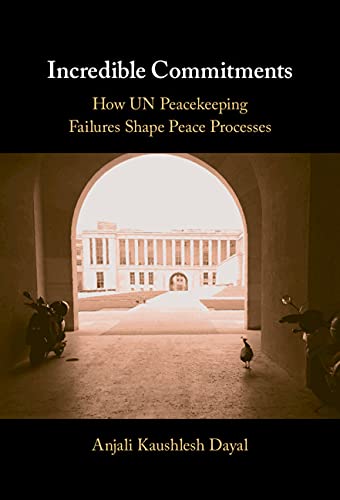
Incredible Commitments: How UN Peacekeeping Failures Shape Peace Processes
by Anjali Kaushlesh Dayal (Author)
Why do warring parties turn to United Nations peacekeeping and peacemaking even when they think it will fail? Dayal asks why UN peacekeeping survived its early catastrophes in Somalia, Rwanda, and the Balkans, and how this survival should make us reconsider how peacekeeping works. She makes two key arguments: first, she argues the UN's central role in peacemaking and peacekeeping worldwide means UN interventions have structural consequences – what the UN does in one conflict can shift the strategies, outcomes, and options available to negotiating parties in other conflicts. Second, drawing on interviews, archival research, and process-traced peace negotiations in Rwanda and Guatemala, Dayal argues warring parties turn to the UN even when they have little faith in peacekeepers' ability to uphold peace agreements – and even little actual interest in peace – because its involvement in negotiation processes provides vital, unique tactical, symbolic, and post-conflict reconstruction benefits only the UN can offer.
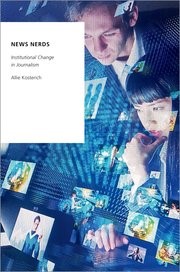
News Nerds: Institutional Change in Journalism (OXFORD STUDIES DIGITAL POLITICS SERIES)
by Allie Kosterich (Author)
The content of news has not changed much over the last century; yet, the ways in which journalists both gather and disseminate information have been turned on their head. Today's journalists are coding, programming, running analytics, and developing apps. These "news nerds" are industry professionals working in jobs at the intersection of traditional journalism and technologically intensive positions that were once largely separate. Consequently, news nerds have changed the institutionalized view of journalism, which now accounts for these professionals.
News Nerds explores how technological, economic, and societal changes are impacting the institutionalized profession of journalism. Allie Kosterich draws on a mixed-methods research design to make sense of how skills and practices become entrenched throughout the industry. Taken together, these data reveal the ways in which the profession is evolving to incorporate new technological skillsets and new routines of production.
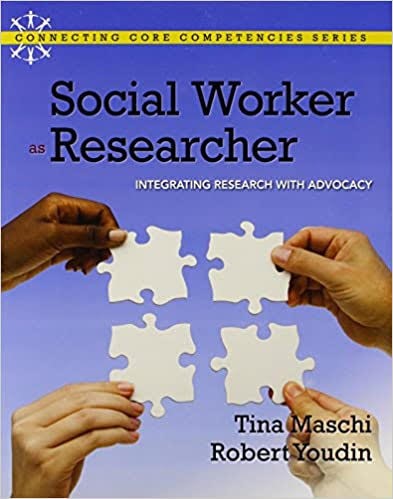
Social Worker as Researcher: Integrating Research with Advocacy 1st Edition
by Tina Maschi (Author), Robert Youdin (Author)
This book offers a practical framework to those who want to pursue one’s purpose and passion. Using a case study of the profession of social work, it is grounded in the ‘heart’ (e.g., ethics, compassion, caring, inductive reasoning, inspiration, imaginative design), ‘head’ (e.g., science, deductive reasoning, research, critical thinking, & structure), and hands (e.g., action, inspired activism). This book is relevant for students, interdisciplinary professionals, researchers, scientists, and everyday citizens who are inspired to express their love through service to others and the earth and feel the urge, urgency, and call to inspired action.
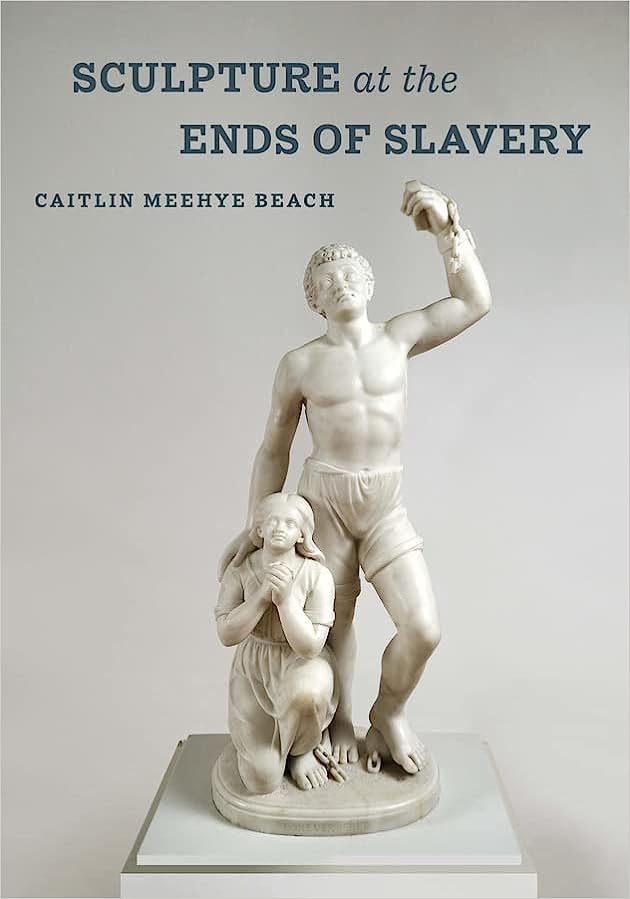
Sculpture at the Ends of Slavery (Volume 9) (The Phillips Collection Book Prize Series) Hardcover – November 15, 2022
by Caitlin Meehye Beach (Author)
From abolitionist medallions to statues of bondspeople bearing broken chains, sculpture gave visual and material form to narratives about the end of slavery in the eighteenth and nineteenth centuries. Sculpture at the Ends of Slavery sheds light on the complex—and at times contradictory—place of such works as they moved through a world contoured both by the devastating economy of enslavement and by international abolitionist campaigns. By examining matters of making, circulation, display, and reception, Caitlin Meehye Beach argues that sculpture stood as a highly visible but deeply unstable site from which to interrogate the politics of slavery. With focus on works by Josiah Wedgwood, Hiram Powers, Edmonia Lewis, John Bell, and Francesco Pezzicar, Beach uncovers both the radical possibilities and the conflicting limitations of art in the pursuit of justice in racial capitalism's wake.
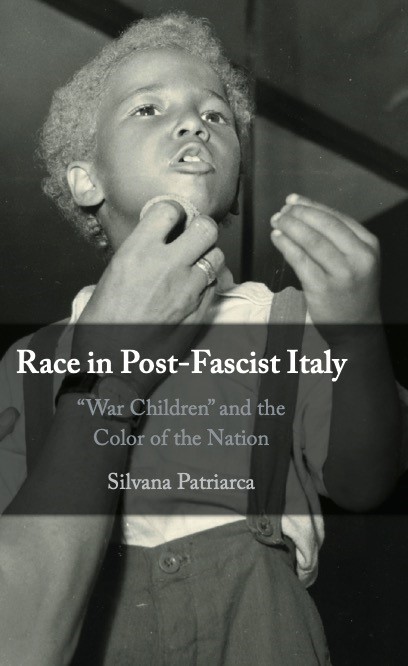
Race in Post-Fascist Italy: 'War Children' and the Color of the Nation
by Silvana Patriarca (Author)
Focusing on the experiences and representations of the 'brown babies' born at the end of World War Two from the encounters between Black Allied soldiers and Italian women, this book explores the persistence of racial thinking and racism in post-fascist and postcolonial Italy. Through the use of a large variety of historical sources, including personal testimonies and the cinema, Silvana Patriarca illustrates Italian – and also American – responses to what many considered a 'problem'. She sensitively analyses the perceptions of race/color among different actors, such as state and local authorities, Catholic clerics, filmmakers, geneticists, psychologists, and ordinary people, and her book is rich in detail about their impact on the lives of the children. Uncovering the pervasiveness of anti-Black prejudice in the early democratic republic, as well as the presence and limitations of anti-racist sensibilities, Race in Post-Fascist Italy allows us to better understand Italy's conflicted reaction to its growing diversity.